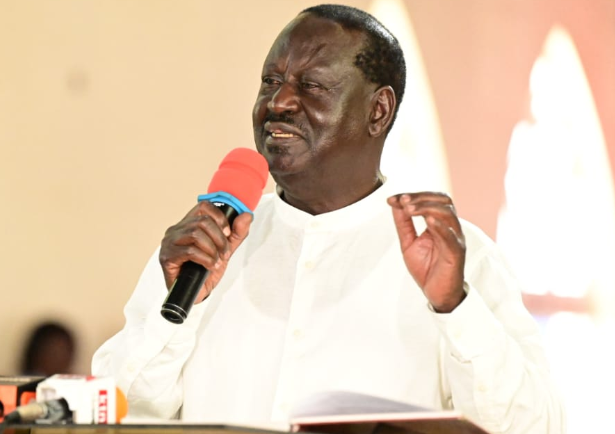Why I want Raila in Addis Ababa to head AU
By Mukalo.Kwayera, March 20, 2024When he made his announcement to bid for the position of chairperson of the African Union Commission (AUC) early last month, Opposition leader Raila Odinga touched on a matter of grave ramifications and of which few African leaders dare talk about.
Standing beside former Nigerian President Olusegun Obasanjo, Raila expressed his disgust at the manner in which African migrants die in the Mediterranean Sea while attempting to cross over to Europe aboard overloaded rickety boats.
Save for President William Ruto Whom I have heard on two occasions address himself to this issue, no presentAfrican Head of State has stuck their neck out to talk about it.
Of course, retired President Uhuru Kenyatta was unequivocal on the subject. Addressing the 42nd Organisation of African Trade Union Unity in Nairobi in September 2019 Uhuru stated: “It is very disheartening to see our sons and daughters lose life crossing the Mediterranean Sea, being humiliated in foreign lands because we cannot get together and grow our own prosperity and provide employment, a future and hope for them.”
Uhuru spoke on behalf of hundreds of millions of voiceless people in Africa.
It is against this background that I am elated by the prospect of Raila becoming the AUC chair. Though the position is basically that of a civil servant on which there is no much political gravitas, the person of Raila Odinga will obviously give it a fresh tinge of life.
Raila has courage. Positive courage is one thing missing among Africa’s political class. Where courage exists, it is usually for wrong reasons, intentions and purposes such as exterminating political rivals, frustrating democracy, plunder of national resources and fanning of strife.
Raila has over the years demonstrated that he can boldly confront an issue which others are reluctant to deliberate on.
Africa needs reforms. In fact, reforms at the African Union are long overdue. Raila’s presence in Adds Ababa is all the continent needs to trigger it into action. He has repeatedly expressed his desire to engage the rest of Africa on matters of Pan-Africanism, trade, culture and free movement of goods.
Coups, ethnic or political violence, election rigging and fighting over polls results, famine and starvation, dictatorship, corruption and diseases are what form the images that have defined Africa for the past five decades.
Most of the 55 African countries attained independence more than half a century ago. The continent should by now have devised its own course politically and economically.
Unfortunately it has not. Africa’s leaders still perch on the periphery – upon summoning- at fora where important global decisions are made and executed.
Yet, each year, thousands of African migrants – an estimated 30,000 of them teenagers – troop northwards through the harsh conditions of the Sahel and Sahara desert with dreams of reaching Europe where they hope to experience a better life.
Many drown in canoes while attempting to cross the Mediterranean. Others who do not make it for failing to pay their smugglers are held in squalid militia-controlled dungeons while those who make it end up in circumstances not dissimilar to slavery.
African Heads of States and governments converge under the AU auspices in Addis Ababa annually to discuss the continent’s challenges and achievements.
Strangely, the issue of illegal migration and repression from the affected countries do not feature. Such matters are left for Europe, the US, Canada, Australia and New Zealand to discuss and find solutions. Those whose shoes pinch most, and who ought to tackle the woes, elect to remain mute. Time is now for Africa to stand up to its needs.
African leaders must change the AU from a mere talk-shop into a serious caucus of men and women who plan and lay stronger foundations for the future of the continent.
Which is why Raila’s bid for AU chairmanship must be encouraged and supported by one and all. He deserves backing- both at home and beyond. He certainly will take this agenda to continental gatherings.
African leaders have the onus to change the destiny of their nations through deliberate efforts that create space for every aspect of democracy and economic growth.
My expectation is that Raila will see to it that Africa is no longer an object of ridicule and negative profiling. That is why I want him in Addis Ababa.
—The writer is the Revise Editor, People Daily —kwayeram@yahoo.co.uk
